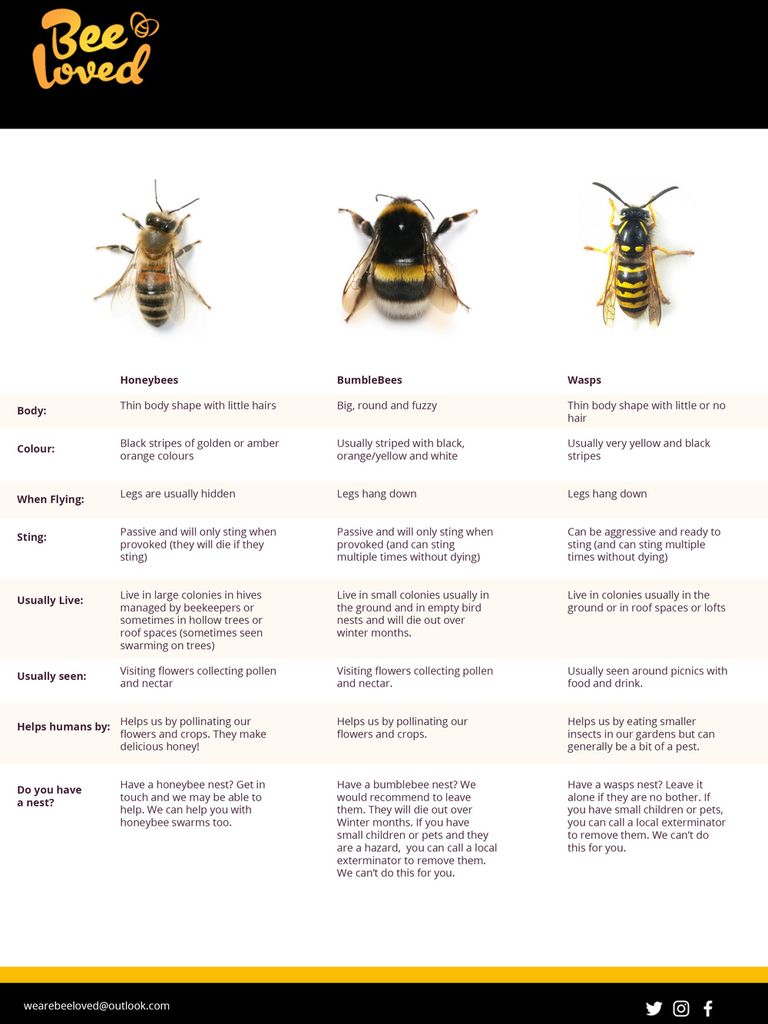Bees, Wasps and Hornets
All bees, wasps and hornets have the ability to sting but whether they do so depends on the species.
Click on the image to the left to learn more about the differences between bees, wasps and hornets.
Bees
Most bee species are harmless to humans unless provoked and will only sting as a last resort, as doing so tears the stinger off the bee and kills it.
All bees are strictly nectivores (they only eat pollen and nectar from flowers). Therefore it is in the best interest of the bee to just flutter from flower to flower collecting nectar and pollen.
In addition it has been estimated that bees are responsible for the pollination of at least a third of our food crops meaning that 1 in every 3 forkfuls of food we eat is solely down to the actions of bees.
As such we DO NOT remove bee nests or exterminate bees as we believe that they are vital to our environment.
We can give advice on bee removal and give you contact details for this specialised service.
Wasps
On the other hand wasps are scavengers, which is why they hover around your food and drink on hot days or when you are having a picnic or barbecue.
Wasps will eat nearly everything and will taste or eat jams, fruit, meat etc.
A wasp can use its sting repeatedly with no damage to itself, this means that if provoked a wasp can sting repeatedly. In addition when angry wasps release pheromones saying they are under attack leading to more wasps arriving and stinging.
Wasps are a particular problem in the Autumn when food supplies start running low and become increasingly aggressive as the temperature drops.
The removal of wasps is a technically complicated process and will need to be assessed.
Treatment of wasp nests will be £45. Any additional nests located on the property will incure a further £15 cost for each nest. This will include the removal of the nest.
Hornets
Hornets are basically giant wasps. They can be told apart from wasps as they are much bigger and have a reddish colour on their backs.
In general hornets are pretty harmless and will not sting unless provoked, preferring to give a loud buzz as a warning instead. However, when they do sting, they can sting repeatedly and the pain is much worse than from a bee or normal wasp.
In recent years there has been an increase in the sightings of the Asian Giant Hornet. These hornets really do pack a punch and it is best to avoid them if at all possible.
For the removal of hornets and their nests please contact us at pat@perpetualpestcontrol.co.uk for more information or to book a visit.





